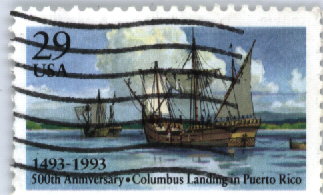Introduction
The historical development of the American economy is rooted in the quest of European settlers for economic gain in the 16th, 17th and 18th centuries. Until this time, all of North America's inhabitants were Native Americans, indigenous peoples who are believed to have traveled to America about 20,000 years earlier across a land bridge from Asia, where the Bering Strait is today.The first "discovery" of America by Europeans was made by the Vikings at about the year 1000. But the event went largely unnoticed; at that time most of European society was still firmly based on agriculture and land ownership. Commerce had not yet assumed the importance that would provide an impetus to the further exploration and settlement of North America.
 In 1492, Christopher Columbus, an Italian sailing under the
Spanish flag, set out to find a southwest passage to Asia and
discovered a "New World." For the next 100 years, English,
Spanish, Portuguese, Dutch and French explorers sailed forth,
looking for the New World, for gold and riches, for honor and
glory.
In 1492, Christopher Columbus, an Italian sailing under the
Spanish flag, set out to find a southwest passage to Asia and
discovered a "New World." For the next 100 years, English,
Spanish, Portuguese, Dutch and French explorers sailed forth,
looking for the New World, for gold and riches, for honor and
glory.
But the North American wilderness offered early explorers little glory and less gold, so most did not stay. The individuals who did settle North America arrived later, and in many cases were in search of economic opportunity, or were fleeing religious intolerance and political despotism. In 1607, a daring band of Englishmen built the first permanent settlement in what was to become the United States. It was called Jamestown and was located in the present-day state of Virginia.
